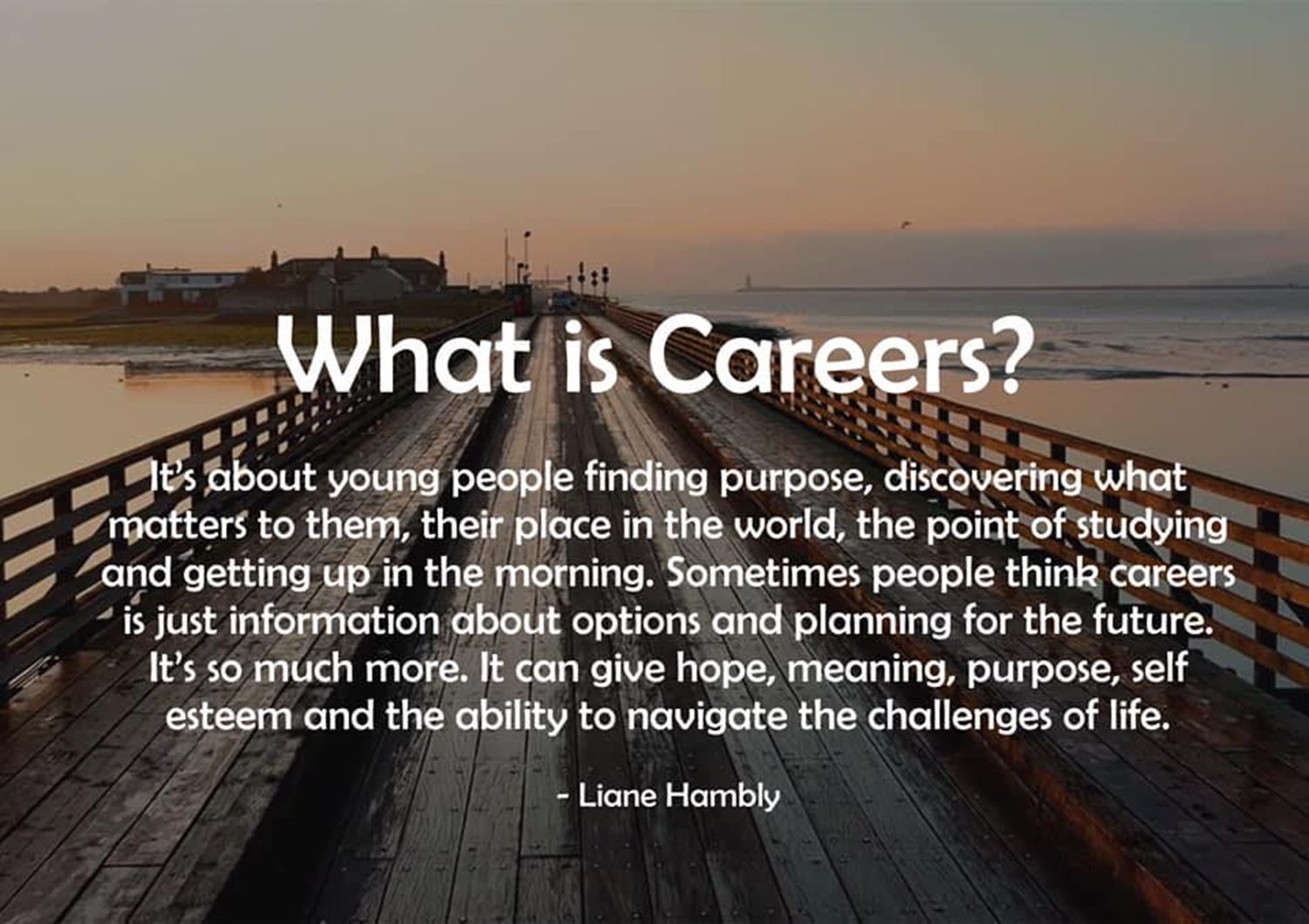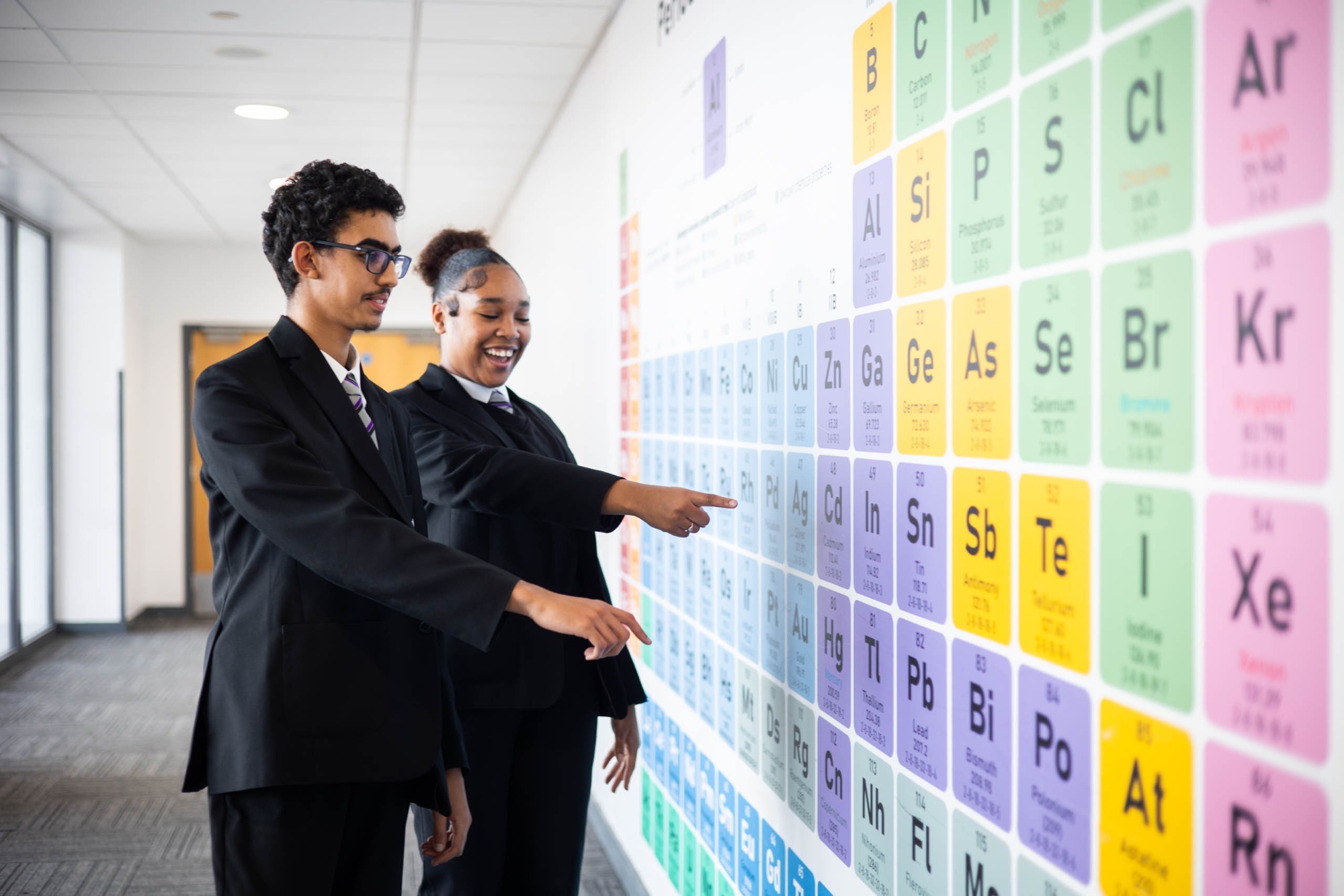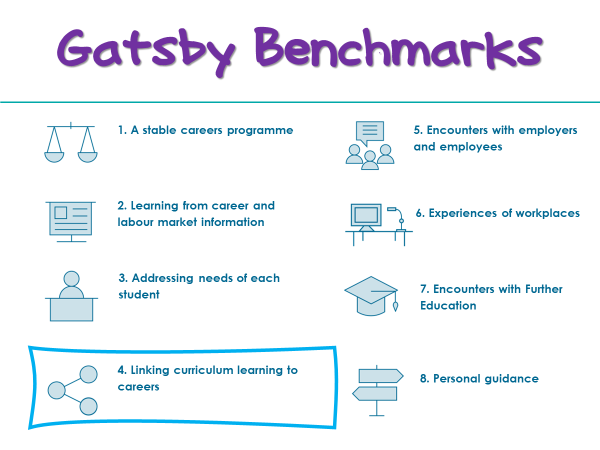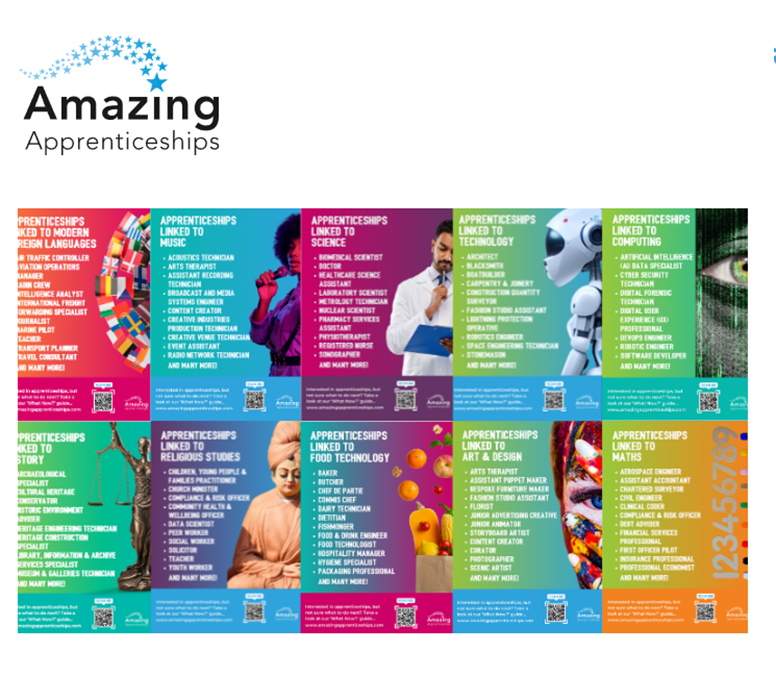Careers Zone for Staff

Research shows that linking the curriculum to careers (Gatsby Benchmark 4) results in higher educational outcomes, increased attainment, improved attendance, and an increase in young people pursuing personally valued educational destinations.
- Subject teachers are highly influential – students are 18 times more likely to be motivated to learn if their teachers know their hopes and dreams[1].
- Students feel more engaged in their learning when they perceive the relevance of what they are studying to their own and other people’s lives
- Students become more aspirational, knowing that there are numerous pathways to success
- Careers delivered through subjects have also been shown to be positively associated with young people’s decisions to pursue those subjects in higher education.
10 Ideas
1. Make explicit links to essential skills in lessons

2. Highlight pathways at 15 and 18 in your subject
3. Identify linked job roles/sectiors in your subject
4. Challenge stereotypes around different job roles
5. Set homework where students research into careers
6. Teach to students' aspirations
7. Organise a virtual talk
8. Have ex students come in to speak to students
9. Start a new topic by relating to the wider world
10. Use an external employer to set a project and provide feedback.
Resources
My Learning My Future – ideas, resources and links for 20+ subjects at KS3, KS4 and Post 16, to engage students in curriculum learning by highlighting the relevance of their subjects to future careers, opportunities and pathways
Careers Pilot – an excellent website for job profiles including lots of labour market information (LMI)
Careers Video Clips – People talking about their jobs in different sectors
What’s the Point Videos – explain the links between elements in different subjects to careers. Although the content is good, relies on students reading the video.
Video Clip – Explains the Gatsby Benchmarks and gives ideas for careers in the curriculum
Skills Builder Resources – posters and display material




